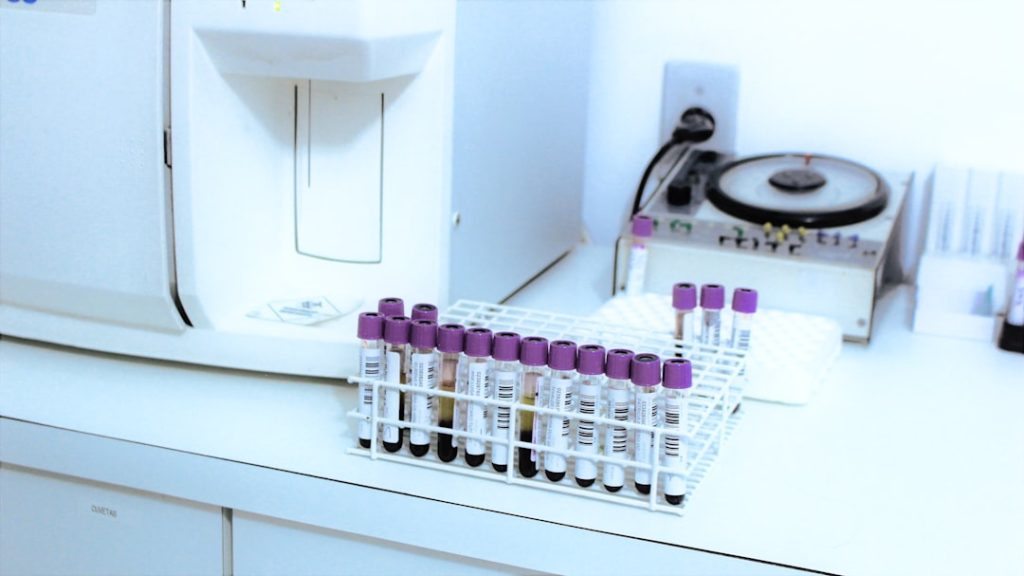Clinical research trials are systematic investigations designed to evaluate the safety and efficacy of new medical interventions, including drugs, devices, and treatment protocols. These trials are essential for advancing medical knowledge and improving patient care. They typically follow a structured process, often divided into phases, each with specific objectives and methodologies.
Phase I trials primarily focus on assessing safety and dosage, while Phase II trials evaluate efficacy and side effects. Phase III trials involve larger populations to confirm effectiveness and monitor adverse reactions in a more diverse group. Finally, Phase IV trials occur after a treatment has been approved, focusing on long-term effects and additional uses.
The design of clinical trials is governed by strict regulatory frameworks to ensure ethical standards and participant safety. Institutional Review Boards (IRBs) oversee the ethical aspects of the trials, ensuring that participants are fully informed about the risks and benefits before consenting to participate. The informed consent process is crucial; it provides potential participants with comprehensive information about the study’s purpose, procedures, potential risks, and benefits.
This transparency is vital for maintaining trust between researchers and participants, as well as for upholding the integrity of the research process.
Key Takeaways
- Clinical research trials are essential for developing new medical treatments and improving patient care.
- Participating in trials can provide access to cutting-edge therapies and contribute to medical advancements.
- Finding local clinical trials involves using online databases, healthcare providers, and research centers.
- Eligibility for trials depends on specific health criteria, which must be carefully reviewed before enrolling.
- Asking detailed questions about risks, benefits, and procedures is crucial before joining a clinical research trial.
Benefits of Participating in Clinical Research Trials
Participating in clinical research trials offers numerous benefits to individuals, healthcare providers, and the broader medical community. For participants, one of the most significant advantages is access to cutting-edge treatments that may not yet be available to the general public. This can be particularly appealing for patients with conditions that have limited treatment options or for those who have exhausted standard therapies.
In some cases, participants may receive new medications or interventions that demonstrate promising results in early studies, potentially leading to improved health outcomes. Moreover, participants in clinical trials often receive comprehensive medical care throughout the study period. This includes regular monitoring by healthcare professionals, which can lead to early detection of complications or side effects that might otherwise go unnoticed.
Additionally, many trials provide participants with free access to medications and treatments, which can alleviate financial burdens associated with healthcare costs. Beyond personal health benefits, participation contributes to the advancement of medical science, helping researchers gather data that can lead to new therapies and improved treatment protocols for future patients.
How to Find Clinical Research Trials Near Me

Finding clinical research trials in your vicinity can be a straightforward process if you know where to look. One of the most effective resources is the ClinicalTrials.gov database, maintained by the U.S. National Library of Medicine. This comprehensive database allows users to search for trials based on various criteria, including location, medical condition, and phase of the trial. By entering your zip code or city name, you can quickly identify ongoing studies in your area that align with your health needs or interests. In addition to online databases, local hospitals and academic medical centers often have dedicated research departments that conduct clinical trials. Many institutions publish information about their ongoing studies on their websites or through community outreach programs. Engaging with healthcare providers can also be beneficial; physicians often have knowledge of current trials and can refer patients who may qualify for participation. Furthermore, patient advocacy groups related to specific diseases frequently maintain lists of relevant clinical trials and can provide guidance on how to get involved.
Qualifications and Criteria for Participating in Clinical Research Trials
| Qualification/Criteria | Description | Purpose | Example Metrics |
|---|---|---|---|
| Age Range | Specific age limits for participants | Ensure safety and relevance of results | 18-65 years, 12-17 years (pediatric trials) |
| Health Status | General health condition or presence of specific diseases | Target population and minimize risk | Healthy volunteers, diagnosed with Type 2 Diabetes |
| Gender | Male, female, or both | Address gender-specific responses or conditions | Female only (e.g., breast cancer trials) |
| Previous Treatments | History of prior medications or therapies | Control for confounding factors | No prior chemotherapy, must have failed standard treatment |
| Informed Consent | Voluntary agreement to participate after understanding risks | Ethical compliance and participant autonomy | Signed consent form documented |
| Laboratory Values | Specific blood, liver, kidney function test results | Ensure participant safety and eligibility | Hemoglobin > 10 g/dL, Creatinine < 1.5 mg/dL |
| Exclusion Criteria | Conditions or factors disqualifying participation | Reduce risk and improve data quality | Pregnancy, active infections, substance abuse |
| Compliance Ability | Participant’s ability to follow study protocol | Ensure data integrity and safety | Ability to attend scheduled visits, adhere to medication |
Eligibility criteria for clinical research trials vary widely depending on the study’s objectives and design. Common factors that determine eligibility include age, gender, medical history, current health status, and specific diagnoses. For instance, a trial investigating a new treatment for diabetes may only enroll participants diagnosed with type 2 diabetes within a certain age range.
These criteria are established to ensure that the study population is homogenous enough to yield reliable data while also safeguarding participant safety. In addition to inclusion criteria, many trials also have exclusion criteria that disqualify individuals from participation based on certain factors. For example, individuals with specific comorbidities or those currently taking certain medications may be excluded to minimize confounding variables that could affect study outcomes.
It is essential for potential participants to discuss their medical history thoroughly with the research team during the screening process to determine their eligibility accurately. This dialogue not only helps ensure participant safety but also enhances the integrity of the trial results.
What to Expect When Participating in a Clinical Research Trial
When participating in a clinical research trial, individuals can expect a structured experience that involves several key components. Initially, participants will undergo a screening process that includes medical evaluations and assessments to confirm eligibility. Once enrolled, they will receive detailed information about the study protocol, including what procedures will be involved, how often they will need to visit the research site, and what types of assessments will be conducted throughout the trial.
During the trial itself, participants may be required to adhere to specific guidelines regarding medication intake or lifestyle changes. Regular follow-up visits are typically scheduled to monitor health status and collect data on any side effects or changes in condition. Participants should be prepared for various assessments, which may include blood tests, imaging studies, or questionnaires about their health and quality of life.
Throughout this process, open communication with the research team is encouraged; participants should feel comfortable discussing any concerns or questions that arise during their involvement in the trial.
Questions to Ask Before Participating in a Clinical Research Trial

Before committing to participate in a clinical research trial, it is crucial for potential participants to ask pertinent questions that will help them make informed decisions. One of the first questions should be about the purpose of the trial: What is being tested, and why is it important? Understanding the rationale behind the study can provide insight into its potential impact on medical science and personal health.
Additionally, participants should inquire about the risks and benefits associated with participation. What are the possible side effects of the treatment being tested? How might participation affect their current health condition?
It is also essential to ask about the duration of the trial and what will be expected from them throughout this period. Questions regarding compensation for time and travel expenses can also be relevant, as some studies offer stipends or reimbursements for participants’ involvement.
The Importance of Clinical Research Trials in Advancing Medicine
Clinical research trials play a pivotal role in advancing medicine by providing a structured framework for testing new therapies and interventions before they become widely available. These trials are essential for establishing evidence-based practices that guide clinical decision-making. Without rigorous testing through clinical trials, new treatments could enter the market without adequate understanding of their safety or effectiveness, potentially putting patients at risk.
Moreover, clinical trials contribute significantly to public health by addressing unmet medical needs across various populations. They allow researchers to explore diverse patient demographics and conditions, ensuring that new treatments are effective across different groups. This inclusivity is vital for developing therapies that are not only safe but also effective for all segments of the population.
The data generated from these trials inform regulatory decisions made by agencies such as the Food and Drug Administration (FDA), ultimately shaping healthcare policies and practices.
Resources for Finding Clinical Research Trials Near Me
In addition to ClinicalTrials.gov, several other resources can assist individuals in finding clinical research trials nearby. The World Health Organization (WHO) maintains an international registry of clinical trials that can be useful for those looking beyond U.S.-based studies. This global perspective can provide insights into innovative treatments being tested worldwide.
Local universities and research institutions often have dedicated websites or contact points for their clinical research departments. Many hospitals also collaborate with pharmaceutical companies or research organizations to conduct trials; thus, checking with local healthcare providers can yield valuable information about ongoing studies. Additionally, social media platforms and online forums related to specific health conditions can serve as informal networks where individuals share information about available clinical trials and personal experiences with participation.
Engaging with these resources can empower individuals seeking innovative treatment options while contributing to the advancement of medical science through their involvement in clinical research trials.




